A couple of weeks ago, I took a trip to Princeton, NYC and Toronto to visit my brother and some friends.
Here’s a wee video about the books I bought and plan to read soon:
by Nicola //
A couple of weeks ago, I took a trip to Princeton, NYC and Toronto to visit my brother and some friends.
Here’s a wee video about the books I bought and plan to read soon:
by Nicola //
September was a good reading month for me.
It began early when I finished Harry’s Last Stand on a flight. Technically, probably, only September at my destination and not at the place from whence I came.
I also made a strong start to The Essayist Project, completing my first two reads.
So, how about some capsule reviews?
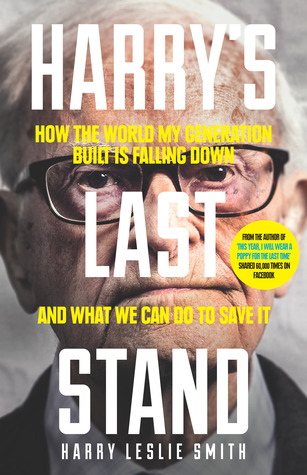
39. Harry’s Last Stand by Harry Leslie Smith
★★★★★ – Harry Leslie Smith is 91 years old and he’s been writing stirring articles about politics for the past few years. He brings a unique and thoughtful perspective to the current era of recession, austerity, and low voter turn-out. I’d seen Harry on Leena’s YouTube channel and knew this wouldn’t be an old man yells at cloud situation – and indeed his is an historic perspective believing in change for the better and a repeat of the post-war move to social responsibility. The structure is a little tortuous, though understandably so as he’s attempting to fit together personal and national history with prewritten work while trying to reach a younger audience. I read this with the Scottish referendum in mind, with hope that his past experiences would come to pass again in our under-represented country. It’s well worth a read before the next general election.
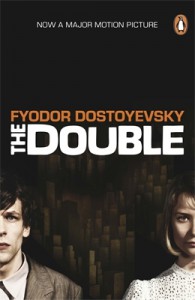
40. The Double by Fyodor Dostoyevsky
★★★★★ – I decided to read this after watching Richard Ayoyade’s film adaptation back in February. It’s one of Dostoyevsky’s shorter works and was mysteriously difficult to find in public domain formats. Regardless, it’s a strange, disorienting and often funny read. A bit annoying to be honest, but certainly a great work of prose. Made me want to read some PG Wodehouse, who no doubt loved this.
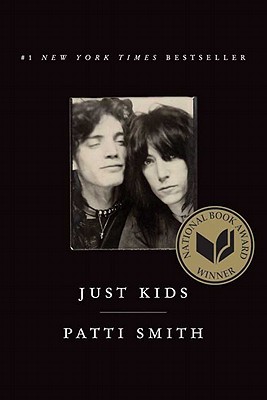
41. Just Kids by Patti Smith
★★★★★ – People rave about this book – and it’s as beautifully and sumptuously written as they all say. It’s a remarkable piece of prose, beginning with the coming-of-age New York art scene tale and gradually tapering off into more trying adult experiences. I am not very familiar with very few of the New York arts darlings she cites, but enjoyed meandering through her world nevertheless. I’m not one for this genre, but would venture that this is the rock and roll memoir for folk who aren’t into rock and roll memoir.
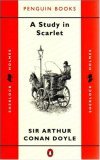
42. A Study in Scarlet by Sir Arthur Conan Doyle
★★★★★ – My first Sherlock Holmes novel! I vaguely remember The Hound of the Baskervilles knocking around in English classrooms at school, but my only forays into mystery/detective fiction so far have been a couple of Raymond Chandler novels. I’m not much one for procedurals but Holmes’ deductions are pretty fun to follow and, although the background story here meanders off for a good third of the page-length, I’m encouraged to continue. I may even go and meet Poirot next.
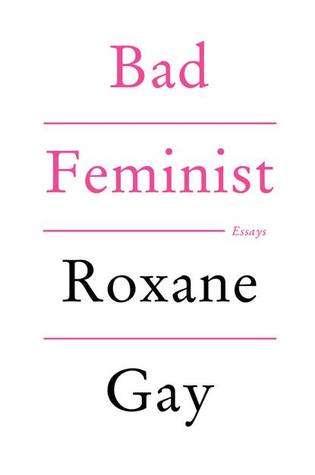
43. Bad Feminist by Roxane Gay
★★★★★ – If you’ve seen my latest Reading Week (#26) then you’ll know that I love Roxane Gay. This was the honorary first read of The Essayist Project, and there’s some remarkable work in here. I especially enjoyed her visitations with pop culture like her personal essays on Sweet Valley High and her participation in national Scrabble championships. A few essays are geared to online and end somewhat abruptly, or describe very specific events that probably won’t hold historical relevance. Overall though her writing – she – is so genuine that it’s like spending time with a smart friend. I highly recommend it.
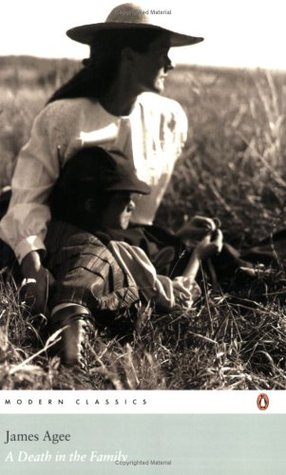
44. A Death in the Family by James Agee
★★★★★ – I know James Agee primarily as a non-fiction writer. He wrote my favourite essay, Comedy’s Greatest Era, but he was also a novelist and poet. A Death in the Family earned him a post-humous Pulitzer Prize – a rare feat – and the kicker is that he hadn’t even finished it. Fortunately for the reader, this is edited with a light hand, placing sections where they imagined things were intended to fit. The story is fairly clear from the title, and he captures the long moment with mundanity and repetition that reach deep into the characters psyches. It’s a pretty wonderful read – do give it a go.
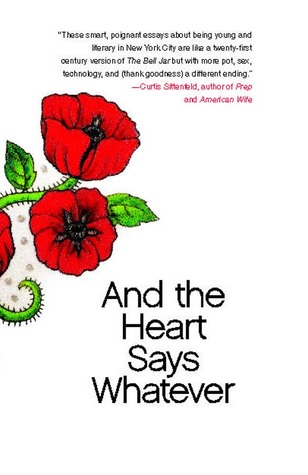
45. And the Heart Says Whatever by Emily Gould
★★★★★ – Another essay collection, and this time one that I’m a little bit undecided about. I’ll extoll my thoughts in a future longform post.
What’s the best book you read this month?
by Nicola //
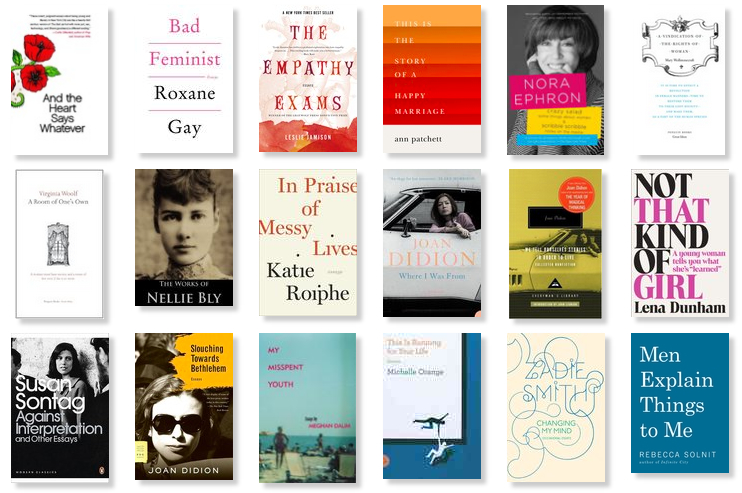
As I announced a couple of weeks ago, I’m embarking upon a project to read collections of essays by women. I’m calling it The Essayist Project.
When I began this endeavour, I wasn’t sure what I’d find – or even how I’d go about it. I’m playing it by ear and building an idea about how to go about my mission as I go.
While I already gave a bit of background and some reading intentions, I wanted to elucidate the events that brought me here and give a bit of my essay-reading history.
First off, I intend to write about each essay collection (or occasionally single essays) in the order I read them. My intention is to make selections from various time periods and to make comparative observations as they appear. Hopefully this way I can build up a picture of the genre over time without trying to create any kind of comprehensive history. (Plus, if that was the goal? I’d never see it through.)
In terms of writing, I must credit Nick Hornby, whose Believer column inspired me to write about my reading experiences in a form beyond the capsule review. I happily swiped my way through the first edition, More Baths, Less Talking on Oyster this summer, and quickly ran out to buy the anthology, 10 Years in the Tub, as soon as I was in a shop (and a country) that stocked it. And, fittingly:
Surely we all occasionally buy books because of a daydream we’re having – a little fantasy about the people we might turn into one day, when our lives are different, quieter, more introspective, and when all the urgent reading, whatever that might be, has been done.”
– Nick Hornby, More Baths, Less Talking
So, what have I read so far? Until this year, mostly comedic memoir, to be honest. I had a Chelsea Handler binge several years ago when I was getting back into reading. I tore through Augusten Burroughs and David Sedaris’ offerings over the course of a year or two. Later, having run out, I read and quite enjoyed Tina Fey’s Bossypants at the time of release, and slogged through Mindy Kaling’s disappointing Is Everyone Hanging out Without Me? Perhaps this is unfair, but so few humour memoirists can come near Augusten Burroughs and the beloved David Sedaris. Well, all except Nora Ephron, whose two books I Remember Nothing and I Feel Bad About My Neck I devoured in under 48 hours in 2012. She is, for me, a master of the form. (Even if Wallflower at the Orgy is a bit impenetrable for philistines like me who dgaf about the 70s.)
After realising I’d only read a handful of non-fiction books in 2013 – most of them memoir – I stepped up my game a bit. Susan Orlean’s writings and Gay Talese’s Frank Sinatra Has a Cold were a formative read, and led me into a huge binge of the Longform podcast, which in turn introduced me to tons of contemporary reporters and essayists.
I picked up Meghan Daum’s My Misspent Youth through a recommendation of an internet followee of an internet followee, and raced through her collection, too. Her strength of character and deprecating brand of nostalgia puts you right into the moment. I especially related to her story of a long-distance relationship in the early AOL era of the internet. Though 10 years removed (in time and, more significantly, in technology) from my own early days online, so much was familiar. Unfortunately her LA Times column put me off – tis a far different job to be paid for your opinion than it is to be paid to have opinions, and lately she’s fallen into the latter camp. Nevertheless, I’ll keenly await her coming book The Unspeakable.
Then it was on to the great Joan Didion. After being entranced by On Keeping a Notebook, Slouching Towards Bethlehem was the revelation that everyone says it is. To wit:
We were on her terrace by the sea, and we were finishing the wine left from lunch, trying to get what sun there was, a California winter sun. The woman whose husband was born the night the Titanic went down wanted to rent her house, wanted to go back to her children in Paris. I remember wishing that I could afford the house, which cost $1,000 a month. “Someday you will,” she said lazily. “Someday it all comes.”
– Joan Didion, ‘On Keeping a Notebook’
This year I’ve also taken in Rebecca Solnit’s Men Explain Things To Me – a factual, sharp and tactful take on casual, learned and performed misogyny in many aspects of life. For the original essay, she’s credited with coining the term “mansplaining” – which I’m sure we’ll all continue to use for longer than we’d wish to. It’s a fascinating, deeply angering and often chilling read. You can read the interview that led me to it here.
Finally, before beginning this quest in earnest I read Marina Keegan’s posthumous hit, The Opposite of Loneliness. Here’s my review.
I’ve begun reading, so now all there is to do is to start writing. As mentioned above, I’ll be tackling each one in order. Look out for my thoughts on Bad Feminist by Roxane Gay and Emily Gould’s And The Heart Says Whatever in the coming weeks.
Do you have any particular reading challenges on the go?
Got any recommendations for me? Questions or comments about the project? Drop me a comment below or tweet me with your thoughts!